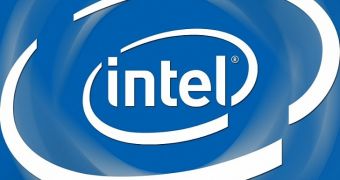For the longest time, Intel has used its sizable chip production facilities exclusively for its own central processing units (CPUs), SoCs (system-on-chip devices), chipsets and other ICs (integrated circuits). Now, though, it has finally started to make such products for other big names in the industry.
Panasonic is the corporation that has enlisted the services of Intel's foundry business. Or, to be more specific, the LSI Business Division has, which specializes in audio and visual device chipsets.
Admittedly, Panasonic is not the first company to place orders with the Santa Clara, California-based chip giant. However, it is the largest and best known around the world, so far. The other five are Microsemi, Tabula, Netronome, Altera, and Achronix Semiconductor.
The 14nm Tri-Gate manufacturing technology will be used to meet Panasonic's orders. It is a low-power technology, compared to ICs that employ planar transistors.
Intel has used it in the Ivy Bridge and Haswell central processing units so far, both of which are produced on 22nm manufacturing lines.
For a company of Intel's caliber, one might say that it is strange how slowly its custom foundry business has been gaining clients, considering that its facilities have served its own purposes perfectly well for decades.
AS it turns out, however, there is a big difference between making your own chips (and being able to create or modify your manufacturing lines as needed) and producing them for others.
Every client comes with their own processor design and expects a certain turnout on each wafer, needs a certain price range before they can commit to a contract, etc.
It doesn't help that long-standing names on the foundry market have shown, time and again, that decades of experience can't prevent chip yield problems or, even worse, failure to deliver on the promise of manufacturing technology advancement.
Taiwan Semiconductor Manufacturing Company, for example, had big problems with 40nm chips back in 2009 and 2010, severely limiting the GPU supply of both NVIDIA and AMD. Now, it has failed to advance to 20nm on time, setting both those companies back months and forcing them to redesign their architectures on 28nm (again). NVIDIA is supposedly considering a full skip to 16nm just to avoid dealing with the problem entirely.
Intel doesn't have such mishaps tainting its reputation (yet), but it hasn't gained the confidence of its prospective customers either. How well Intel delivers on this deal with Panasonic will have a great impact on the likelihood of Chipzilla scoring further contracts.

 14 DAY TRIAL //
14 DAY TRIAL //